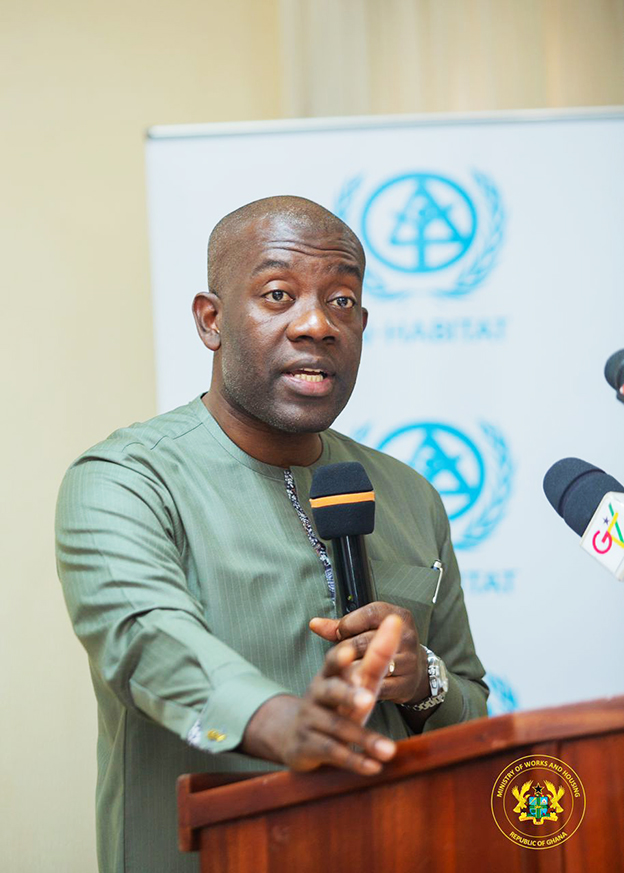Government is taking steps toward bridging the 1.8 million housing deficit in the country by actively developing an incentive package to attract private sector developers to the housing industry.
This initiative was announced by the Minister for Works and Housing, Kojo Oppong Nkrumah, during the Revision of Ghana’s Housing Profile Workshop held in Accra on Tuesday, April 9, 2024.
Speaking at the event which convened stakeholders within the sector, Mr. Oppong Nkrumah said while current housing programmes, though well-intentioned, have seen slow execution, incentivising master developers within the sector with incentives like tax breaks, streamlined approval processes for construction permits and land allocation at competitive rates will jump-start housing projects to bridge this gap.
“We in Ghana need to understand that we cannot resolve a 1.8 million housing deficit without the partnership of the Private sector through incentives. We have commenced engagement with industry groups towards developing this incentive packages,” he said.
 This strategy he said takes inspiration from countries like Kenya and Ivory Coast, which have successfully utilised attractive incentive packages to lure private sector investment into housing development.
This strategy he said takes inspiration from countries like Kenya and Ivory Coast, which have successfully utilised attractive incentive packages to lure private sector investment into housing development.
Collaboration is key
The Minister highlighted ongoing discussions with industry groups like the Ghana Real Estate Developers Association (GREDA) to develop a comprehensive incentive package expressing confidence in securing the necessary approvals from both Cabinet and Parliament. This collaborative approach, he said, signifies the government’s commitment to working alongside the private sector to address the housing challenges the country face.
Ghana’s Housing Profile
The workshop also focused on the revised Ghana Housing Profile, a vital tool that informs housing policy and interventions. Initially developed in 2010, the profile has been updated to reflect the significant changes that have occurred over the past thirteen years, including the adoption of the Sustainable Development Goals, the impact of the COVID-19 pandemic and the findings of the 2021 Population and Housing Census.
This revised profile takes a more holistic view of Ghana’s housing sector, encompassing all income groups and geographic locations. Unlike the previous profile, which focused primarily on urban areas, the new profile aims to integrate housing policies with broader urban and rural development plans.
This ensures that housing development aligns seamlessly with social, economic and environmental considerations for a more sustainable future.
Challenges and Opportunities
The workshop also shed light on the ongoing challenges plaguing Ghana’s housing sector. Lengthy procedures for housing development, limited access to affordable housing, and difficulties in obtaining financing due to high-interest rates were identified as key roadblocks.
However, the workshop also highlighted opportunities for improvement.
The Minister outlined several initiatives aimed at tackling these challenges, including accelerating existing affordable housing programs to deliver outstanding projects; expanding the National Homeownership Fund to provide more opportunities for mortgage financing and encouraging the use of sustainable materials and construction methods for a more environmentally friendly housing sector.
The road ahead
The success of this initiative according to Mr. Oppong Nkrumah will hinge on collective effort. He said the housing sector holds immense potential to contribute to Ghana’s economic and social development and by addressing the current deficit, the country can empower its citizens, create jobs, and foster a more prosperous and inclusive society.
He maintained that with a concerted effort from all stakeholders; government, the private sector and individual Ghanaians, Ghana can rise to the challenge and create a brighter future where the dream of homeownership becomes a reality for all.








